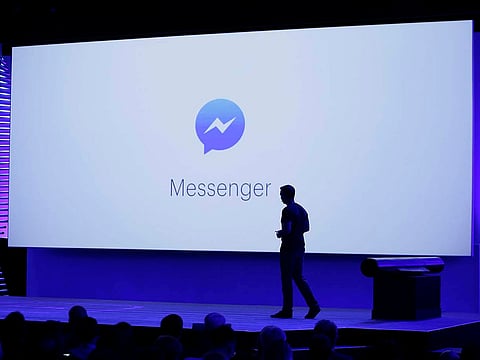Your Facebook messages are now fully encrypted. What this means for you
Meta’s latest end-to-end encryption will forever change the way you chat on Facebook

In a major move, Meta, the parent company of Facebook, has officially introduced end-to-end encryption for personal messages and calls on Facebook Messenger, marking a significant leap toward bolstering user privacy.
The company’s latest announcement unveils the culmination of years-long efforts to implement this feature, a promise initially made in 2016 when Messenger introduced the option for users to turn on end-to-end encryption (E2EE).
The new development is seen as a major win for privacy advocates who have consistently urged tech companies to adopt comprehensive encryption practices to safeguard user data and communications.
However, Meta, previously known as Facebook, has encountered resistance from law enforcement and other agencies concerned about the potential challenges such encryption may pose for criminal investigations.
Meta’s social media ecosystem
Loredana Crisan, the Vice President of Messenger, emphasised the rigorous approach taken in perfecting this feature, involving collaboration with external experts, cryptographers, designers, policy experts, and product managers.
The aim was to rebuild Messenger features from the ground up, ensuring that privacy and safety are paramount in the new encrypted communication landscape.
End-to-end encryption ensures that only the sender and the intended recipient can access the contents of a message or call. Meta asserts that this heightened level of security is necessary in an era where concerns about online privacy, hacking, fraud, and cybercrime are ever-present.
A crucial tool
However, the move to full encryption is not without its challenges. Meta has decided to remove cross-app communication between Instagram and Facebook accounts from mid-December, limiting users’ ability to seamlessly interact across these platforms.
This decision is likely to spark reactions from users who have grown accustomed to the interconnected nature of Meta’s social media ecosystem.
Notably, in 2019, officials from the US, UK, and Australia raised concerns about Meta’s pivot to encrypted messaging, sending a letter urging the company to halt its implementation.
The officials cited worries about the impact on law enforcement investigations, particularly regarding issues like child exploitation and other crimes.
In response to these concerns, a Meta spokesperson emphasised that encryption is a crucial tool for keeping people safe from hackers, fraudsters, and criminals.
Secure communication experience
The spokesperson underlined Meta’s commitment to implementing robust safety measures, including restrictions on adults messaging teens who don’t follow them and using technology to identify and combat malicious behaviour.
Despite this assurance, lawmakers in various regions, including the US, EU, and UK, have been considering child-safety bills that include provisions for authorities to scan encrypted messages. Meta’s move to start end-to-end encryption will undoubtedly fuel debates around balancing privacy and security interests.
Looking ahead, Meta’s software engineers, Jon Millican and Reed Riley, noted in a blog post that they are still in the testing phase for group messaging and other products, including Instagram Direct Messages.
The social media beheoth is actively exploring ways to expand the benefits of end-to-end encryption to other communication features and platforms within its portfolio, with a particular focus on Instagram over the next year.
While no specific timeline has been provided for when Instagram messages will be encrypted, Meta looks set to advancing secure communication experiences across its platforms.





